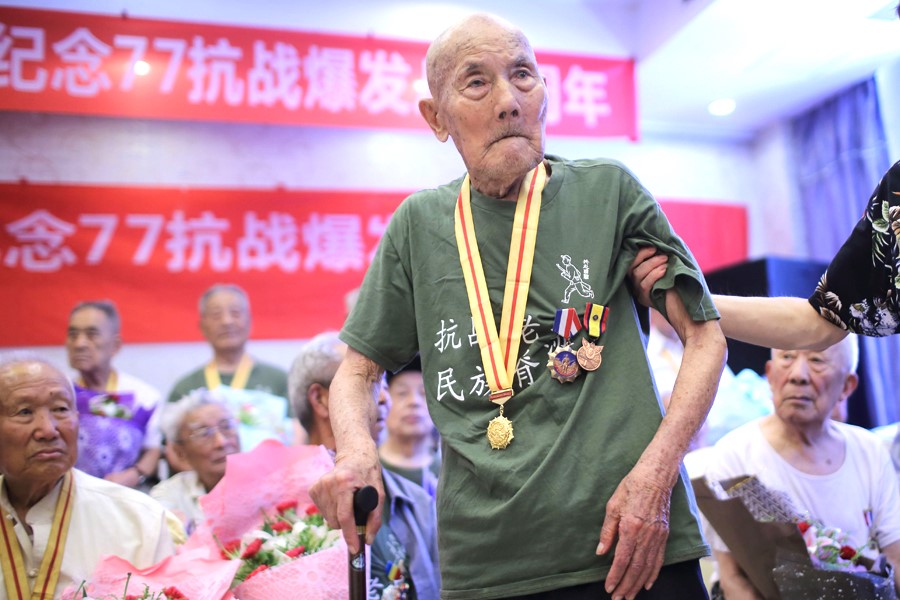He received a gas pain medal: Who is Shimura Kikujiro?
When there is gas stuck in the intestine, a person becomes worse than death. We get caught in an intestinal crisis in the most unlikely place. For example, in congested traffic, during a job interview... Let me exaggerate a little more so we can laugh; at a graduation ceremony, while sitting in the middle of the row at a concert, etc.

This has happened to most of us. Everyone has bad memories that they can't explain. These are difficult moments that are never forgotten. One becomes bent over, sweats coldly, and becomes unable to think of anything. Especially if there is no access to a secluded toilet somewhere nearby, woe to us! It takes a lot of trouble.
But he doesn't get a medal just because he got into trouble!..
The Marco Polo Bridge incident, also known as the Lugou Bridge incident or the July 7 incident, was a battle during July 1937 in the district of Beijing between China's National Revolutionary Army and the Imperial Japanese Army.
Don't ask where the medal came from; There has been a gas shortage in history that was deemed worthy of a medal...
The plot is ridiculous, but I'm not kidding. Historically, an intestinal attack has even been a cause of war, and an infantryman who suffered from flatulence received a medal; would you ever know?
Intestinal crisis caused by war
The Manchurians, who rebelled with the support of Japan in 1932, divided China by establishing a puppet state called the "Manchurian State" of 984 thousand km2 just north of Beijing. The Manchurian government took Japanese forces within its borders in case China attacked, and for years Chinese and Japanese forces were stationed nose-to-nose on the border close to Beijing.
On the night of 7 July, the Japanese units stationed at Fengtai crossed the border to conduct military exercises. Japanese and Chinese forces outside the town of Wanping—a walled town 16.4 km (10.2 mi) southwest of Beijing—exchanged fire at approximately 23:00. The exact cause of this incident remains unknown. When a Japanese soldier, Private Shimura Kikujiro, failed to return to his post, Chinese regimental commander Ji Xingwen (219th Regiment, 37th Division, 29th Army) received a message from the Japanese demanding permission to enter Wanping to search for the missing soldier; the Chinese refused. Although Private Shimura returned to his unit (he claimed that he was suffering from stomach ache, had to find immediate relief in the darkness and got lost, by this time both sides were mobilizing, with the Japanese deploying reinforcements to surround Wanping.
One day in 1937, Japanese forces notified China and began maneuvering near the "Marco Polo" bridge on the border. An infantryman named Shimura Kikujiro, who was crawling on the wet grass during the evening maneuver, felt a rumbling in his stomach. And the noise soon brought pain. Kikujiro, who, like all Japanese people, was very proud, gritted his teeth, but the cramps were unbearable, and in the end, he crept silently into the forest, collapsed behind a bush, and began to evacuate his intestines as noiselessly as possible.
Meanwhile, his unit had gathered together with a sudden order and set out to the barracks in step. Kikujiro decided to spend the night in the forest and return to the dormitory quietly in the morning, so as not to make a funny situation to his comrades. But it turned out that the Japanese company commander would hold a "Tadat" (Count) in military parlance that night. It was soon seen that a private was missing and was reported to the major. The Japanese major was already tired of maneuvering day and night against the Chinese, whom he had always had a crush on. His country was also looking for an excuse to start a war, and this war climate naturally affected the soldiers on the border. Without much thought, the major decided that Shimura Kikujiro had been kidnapped by Chinese forces and sent a delegation to the other side, asking the Chinese in an undiplomatic manner to immediately release the kidnapped soldier. Of course, when the Chinese commander sternly stated that the soldiers were not captured by them, the mortars were suddenly detonated at 4:30 in the morning. The China-Japan war, which would last 8 years, started that day with the gas jam behind the bush.
Japan declared him a war hero
In the morning, Kikujiro was about to come out of the forest where he was hiding, but he had to hide where he was - and where he had emptied his bowels - when he saw the battle. The disgraced soldier encountered the surprise of his life when he returned to his unit in shame the next evening. Japan declared him a war hero. He received a medal at the ceremony and was considered a hero until his death. That's right! Shimura Kikujiro's intestines gave the Japanese Empire the reason it needed to wage war.
This means that when our stomach rumbles at an unexpected place and time, we should not be obsessed with thoughts such as "A disaster is coming."
Who knows? The rumbling in our stomach can change the world, we can even get a medal...
-------------------------------
When a Toilet Break Led to War Between China and Japan in 1937
https://www.warhistoryonline.com/world-war-ii/toilet-break-led-war-china-japan-1937.html
